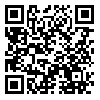BibTeX | RIS | EndNote | Medlars | ProCite | Reference Manager | RefWorks
Send citation to:
URL: http://journal.muq.ac.ir/article-1-929-en.html

 , Parvaneh Taymoori2
, Parvaneh Taymoori2 
 , Saeedeh Haji Maghsoudi3
, Saeedeh Haji Maghsoudi3 
 , Maryam Afshari *
, Maryam Afshari * 
 4, Seyede Melika Kharghani Moghaddam3
4, Seyede Melika Kharghani Moghaddam3 
 , Fahimeh Bagheri3
, Fahimeh Bagheri3 
 , Kheirolah Moradi3
, Kheirolah Moradi3 
 , Javad Zavar Chahar Tagh5
, Javad Zavar Chahar Tagh5 

2- 2Social Determinants of Health Research Center, Kurdistan University of Medical Sciences, Sanandaj
3- Faculty of Public Health, Hamadan University of Medical Sciences, Hamadan
4- Faculty of Public Health, Hamadan University of Medical Sciences, Hamadan ,
5- Health Center of Tuyserkan, Hamadan University of Medical Sciences, Hamadan
Background and Objectives: Diabetes is one of the most common health problems with remarkable outcomes. Treatment and management of diabetes is mainly related to self-care status. This study aimed to analyzing self-care behaviors and its related factors in diabetic patients.
Methods: In this descriptive study, 131 diabetic patients referred to the Tuyserkan Diabetes Clinic in 2014, were studied by census method. Self-care behaviors data were collected by self-care scale of Toobert and Glasgow. Background information of diabetic patients, were investigated using pre-designed checklists based on forms in patients` records. Data were analyzed using Mann-Whitney, Kruskal-Wallis, and Spearman’s correlation coefficient tests. The significance level was considered to be 5%.
Results: Out of total 131 diabetic patients, 66 persons (50.4%) were male and 65 persons (49.6%) were female. Their mean age was 51.8 years. Eight patients had heart disease complications. The mean self-care scores of the patients was 25.6 and was indicative of average level of self-care. Self-care behaviors were significantly associated with education level, employment status, type of treatment, and body mass index. There was a significant relationship between self-care components (including diet, physical activity, blood glucose testing and foot care).
Conclusion: Considering the self-care status of patients and the importance of self-care training for diabetics, more attention should be paid to self-care in diabetic patients in health education and health promotion programs.
Received: 2016/06/15 | Accepted: 2016/06/15 | Published: 2016/06/15
| Rights and permissions | |
 |
This work is licensed under a Creative Commons Attribution-NonCommercial 4.0 International License. |




